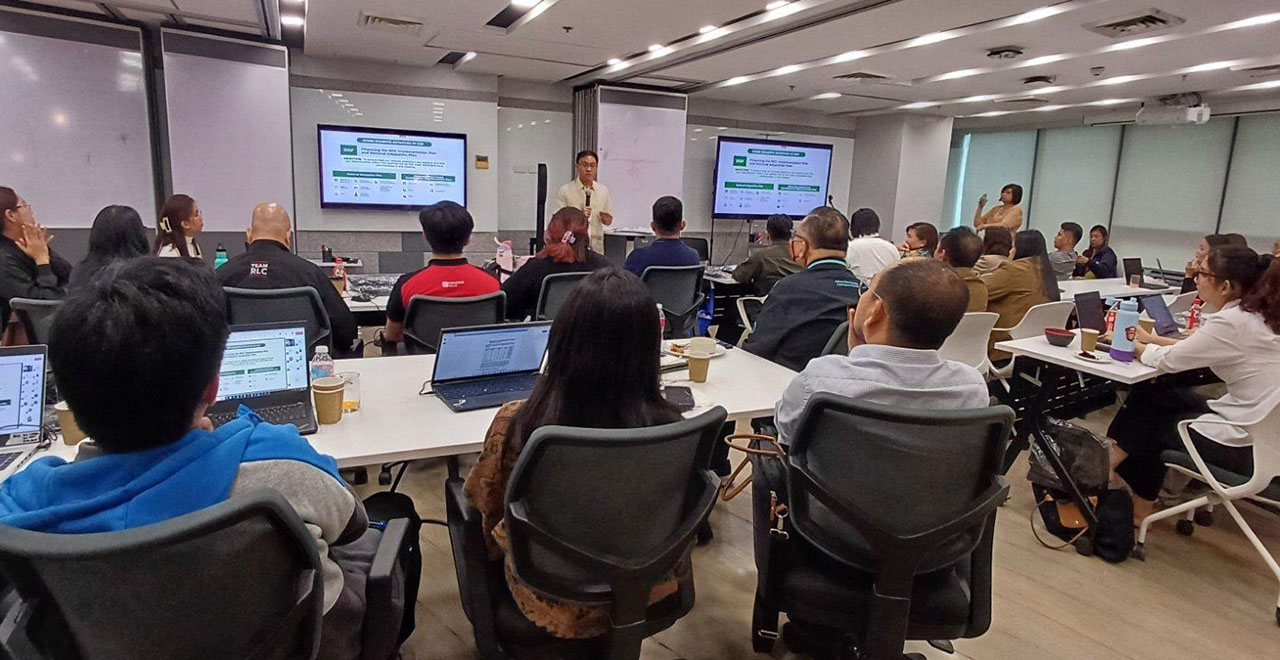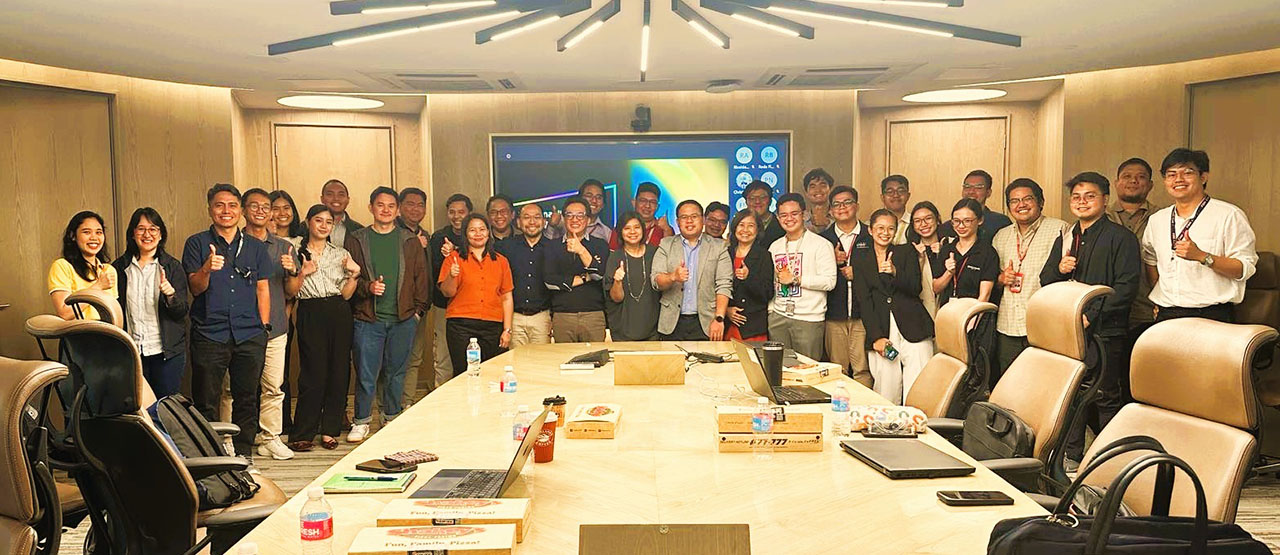The Gokongwei Group’s Sustainability Leads recently participated in an informative session designed to prepare the organization for the sustainability challenges and opportunities anticipated in 2025. Organized by Yvonne Flores, Sustainability and Corporate Social Responsibility head of the Gokongwei Group, the event focused on integrating emerging sustainability trends—particularly innovations in sustainable finance and increasing regulatory scrutiny and transparency—into the group's core business strategies.
In the keynote address, Atty. Renato Salud, Chief Corporate Affairs and Sustainability Officer of JG Summit Holdings, shared compelling insights into the core principles of sustainability. He underscored the need for the Gokongwei Group’s Sustainability Officers to deepen their understanding of both the risks and opportunities in sustainability efforts, as this enhances organizational resilience and unlocks greater commercial value. According to Atty. Salud, the adoption of this holistic perspective ensures that sustainability remains a fundamental and enduring aspect of the group’s overall business strategy.

The activities that followed were structured to address the evolving sustainability landscape and explore tangible steps for adapting to new regulatory expectations and market developments. Key sustainability developments for 2025 were highlighted, with a focus on how innovative financial instruments like green bonds and sustainability-linked loans are reshaping access to capital and risk management, alongside new regulatory frameworks that demand greater transparency in sustainability reporting.
John Adrian Narag, Division Chief at the Philippine Department of Finance, led the first session. Drawing from his extensive experience in international finance, Narag presented the government's strategic priorities for climate policy and sustainability finance in 2025. He explained key initiatives such as the People’s Survival Fund (PSF) and the Loss and Damage Fund (LDF), emphasizing their roles in supporting long-term climate adaptation projects. Narag also discussed how sectors including real estate, aviation, manufacturing, and retail could benefit from these initiatives by developing climate-resilient infrastructures and sustainable urban projects.

Following Narag’s session, Jo Ann Bueno-Eala, Vice President and Head of BPI’s Sustainability Office, discussed the evolution of sustainable finance at BPI. Her presentation outlined BPI’s journey from a traditional banking model to a leader in sustainability finance. Bueno-Eala highlighted the strategic benefits of green bonds and sustainability-linked loans, noting how these instruments provide companies with broader access to capital, improved financing conditions, and enhanced reputational benefits. Her discussion included examples of how BPI’s financing models have supported projects in renewable energy, energy efficiency, and climate resilience, focusing on the importance of integrating Environmental, Social, and Governance (ESG) principles into business operations to align financial performance with sustainability goals.
The third session, led by Benjamin “Benjie” N. Villacorte of SGV & Co., focused on evolving standards in sustainability reporting. Villacorte provided an in-depth analysis of the Philippine Sustainability Reporting Committee’s recommendations for adopting standards, outlining a clear roadmap for companies transitioning to these frameworks. Common challenges and illustrated successful case studies were outlined, bringing attention to the critical role of third-party assurance and robust ESG reporting in maintaining transparency and accountability. He also shared insights on the expanding responsibilities of senior leaders—such as Chief Finance Officers, Chief Information Officers, and supply chain executives—in ensuring compliance and integrating sustainability into core business processes.

In the final session, Quentin Vaquette, co-founder of Wavemaker Impact, the first climate-tech venture build VC Fund in Southeast Asia, provided an overview of how sustainability is integrated in his organization, such as taking steps to reduce carbon emissions and scale startups focused on sustainable innovation. Emphasizing the practical aspects of fostering collaboration between startups and established companies, Vaquette’s talk explored both the opportunities and challenges of investing in climate-tech initiatives.
The day concluded with a session dedicated to planning for 2025, where the sustainability leads reviewed the group’s sustainability targets and discussed strategic directions.
Providing the sustainability leads with practical insights and strategic guidance, the event was a resounding success, ensuring that the Gokongwei Group is well-prepared to adapt to new regulatory frameworks and market dynamics, while continuing to embed sustainability into every facet of its operations and drive its sustainability agenda forward.


